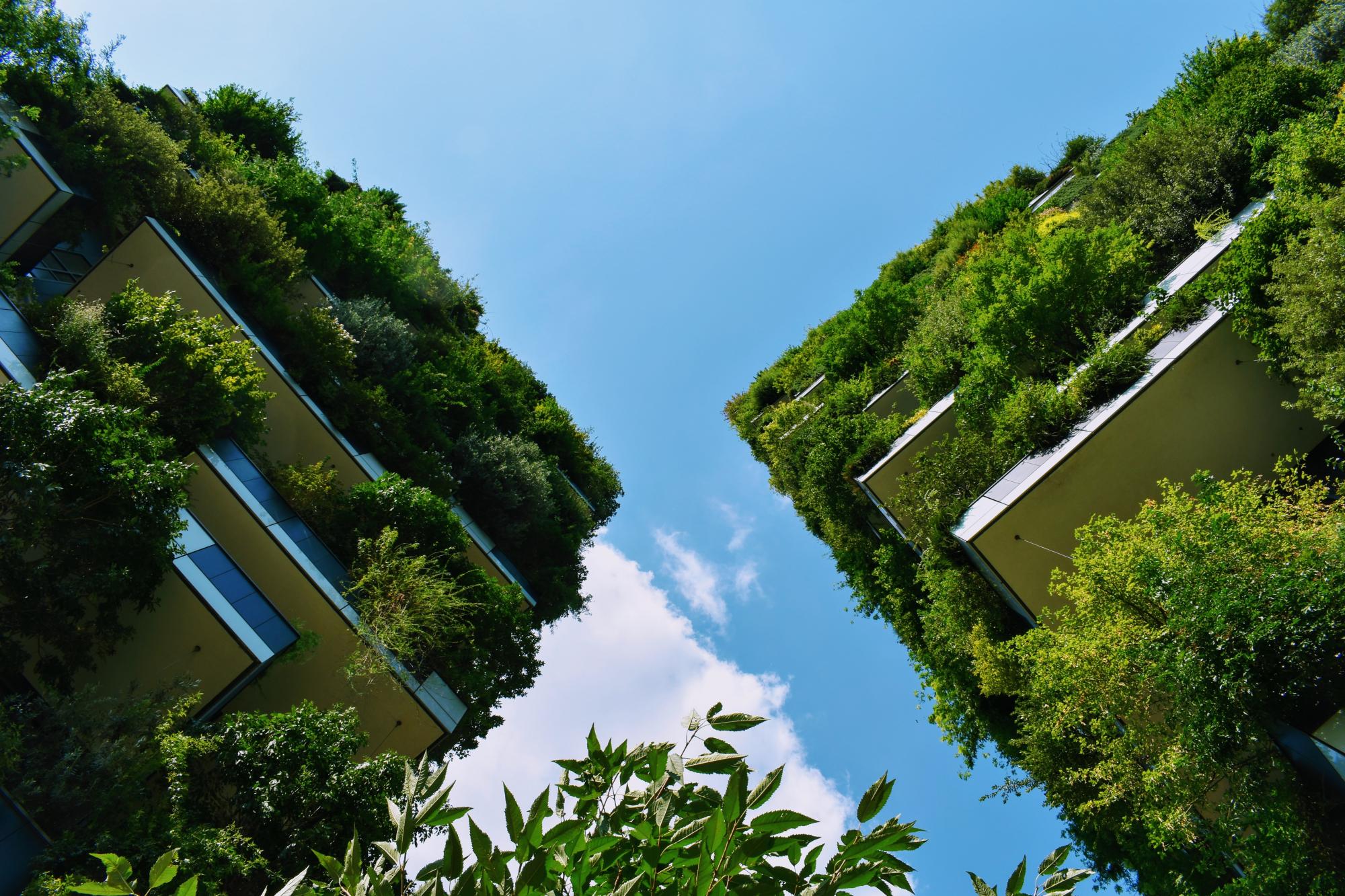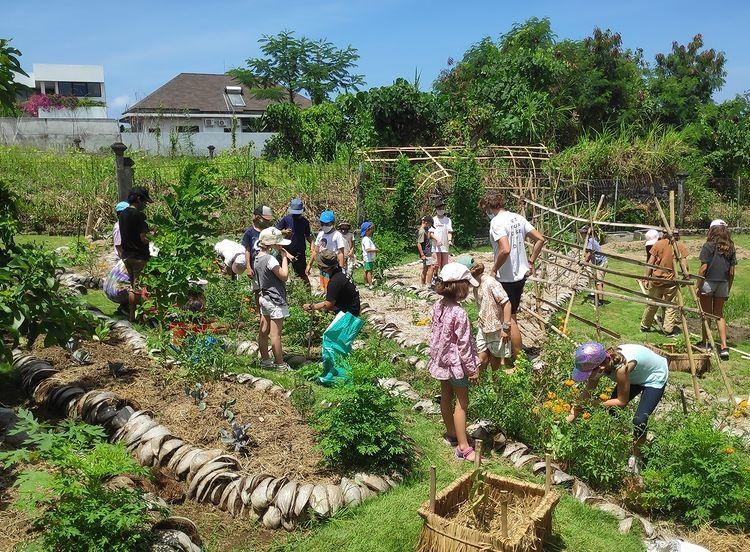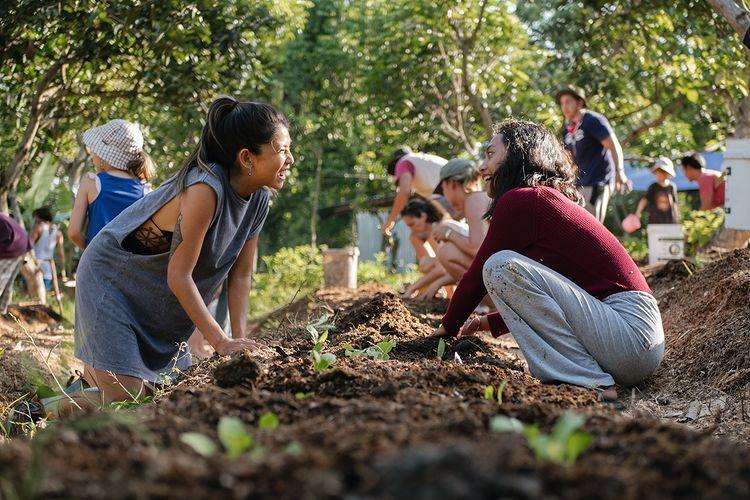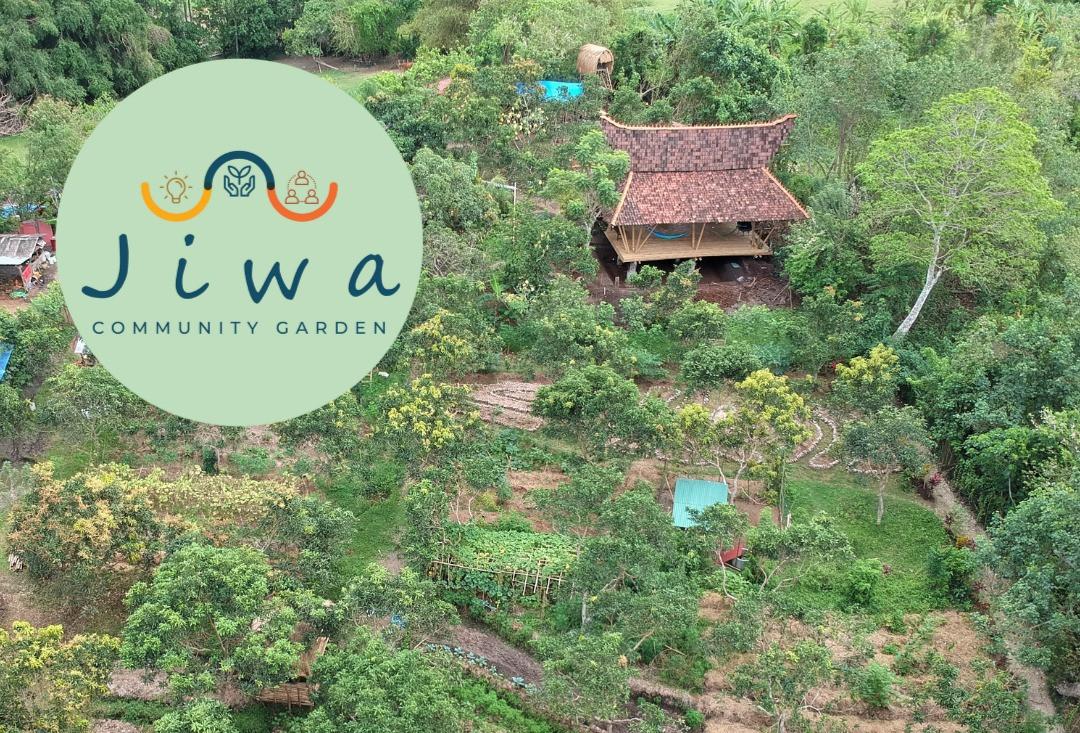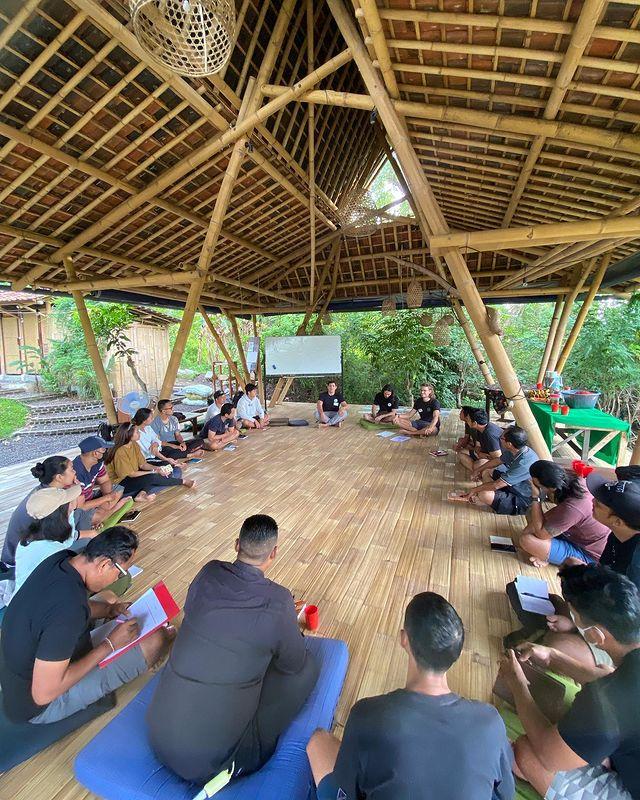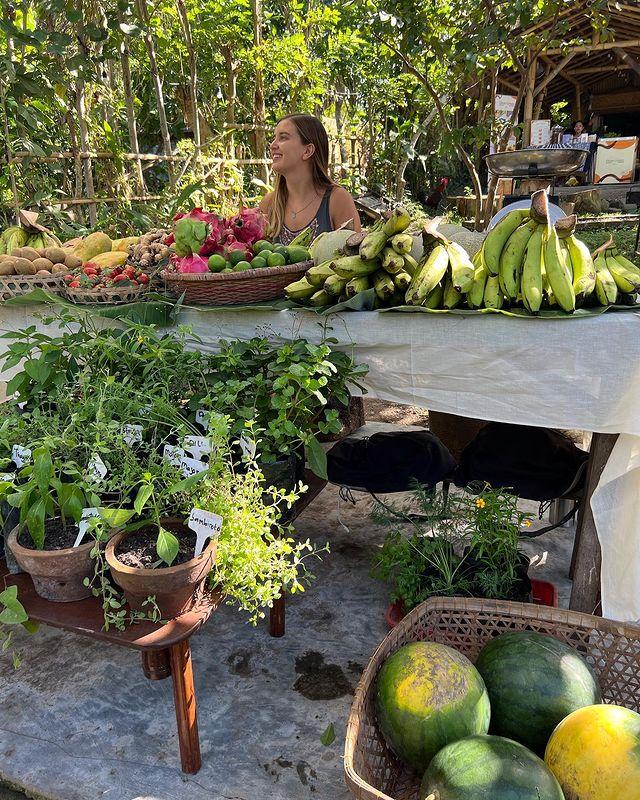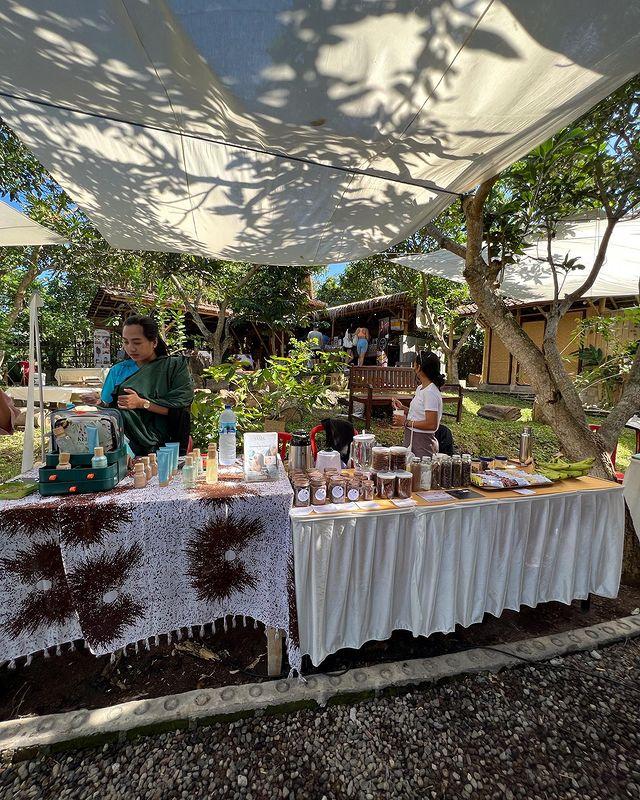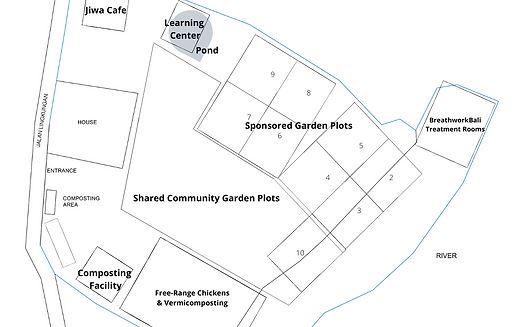The Project 'JIWA Community Garden' is a place to gather, garden, and learn and is located in Canggu, closer to Denpasar City in Bali (1,2,3). The project was founded in 2020 by three friends (citizens) and was developed on about 4500m2 of previously unused land (1,2,3). Jiwa Community Garden has set an example of how unused land can be turned into a fully functional composting facility, productive organic gardens, and a learning center for Permaculture gardening practices, all under one roof (1,2,3). It also welcomes all workawayer/volunteers and other local groups and expats to participate and contribute to activities for community engagement and learning (1,2,3). This project has created a positive impact, and still further plans to develop sub-projects like Permaculture gardening schools and a co-working space cafe open to the public (2,4).
Overview
Nature-based solution
- Community gardens and allotments
- Community gardens
Key challenges
- Environmental quality
- Waste management
- Green space, habitats and biodiversity (SDG 15)
- Green space creation and/or management
- Health and well-being (SDG 3)
- Improving mental health
- Creation of opportunities for recreation
- Inclusive and effective governance (SDG 16)
- Inclusive governance
- Social justice, cohesion and equity (SDG 10)
- Social cohesion
- Social interaction
- Environmental education
- Sustainable consumption and production (SDG 12)
- Sustainable production
Focus
Project objectives
Implementation activities
Main beneficiaries
- Citizens or community groups
- Young people and children
Governance
Management set-up
- Led by non-government actors
Type of initiating organisation
- Citizens or community group
Participatory approaches/ community involvement
- Co-planning (e.g. stakeholder workshops, focus groups, participatory mapping)
- Joint implementation (e.g. tree planting)
- Co-management/Joint management
Details on the roles of the organisations involved in the project
Project implemented in response to ...
Financing
Total cost
Source(s) of funding
- Private funding by citizens
Type of funding
- Donations
Non-financial contribution
- Provision of land
- Provision of labour
- Provision of expertise
- Citizens (e.g. volunteering)
Impacts and Monitoring
Environmental impacts
- Environmental quality
- Improved waste management
- Green space and habitat
- Promotion of naturalistic styles of landscape design for urban development
- Increased green space area
- Increased conservation or restoration of ecosystems
Economic impacts
- Unknown
Socio-cultural impacts
- Social justice and cohesion
- Improved social cohesion
- Improved access to urban green space
- Increased opportunities for social interaction
- Increased involvement of locals in the management of green spaces
- Increased access to healthy/affordable food
- Education
- Increased support for education and scientific research
- Increased knowledge of locals about local nature
Type of reported impacts
Presence of formal monitoring system
Presence of indicators used in reporting
Presence of monitoring/ evaluation reports
Availability of a web-based monitoring tool
References
2. Pangestika, Nevy. Jiwa Community Garden. Act Global, available at Source link (accessed 01-03-2023)
3. Source link. (2023). Learn about growing food and permaculture in Canggu, Bali, Indonesia. Workaway, available at Source link (accessed 01-03-2023)
4. Project Video on YouTube. Jiwa Community Garden. Act Global, available at Source link (accessed 01-03-2023)
5. Social Media Instagram Page. jiwagarden, available at Source link (accessed 01-03-2023)
